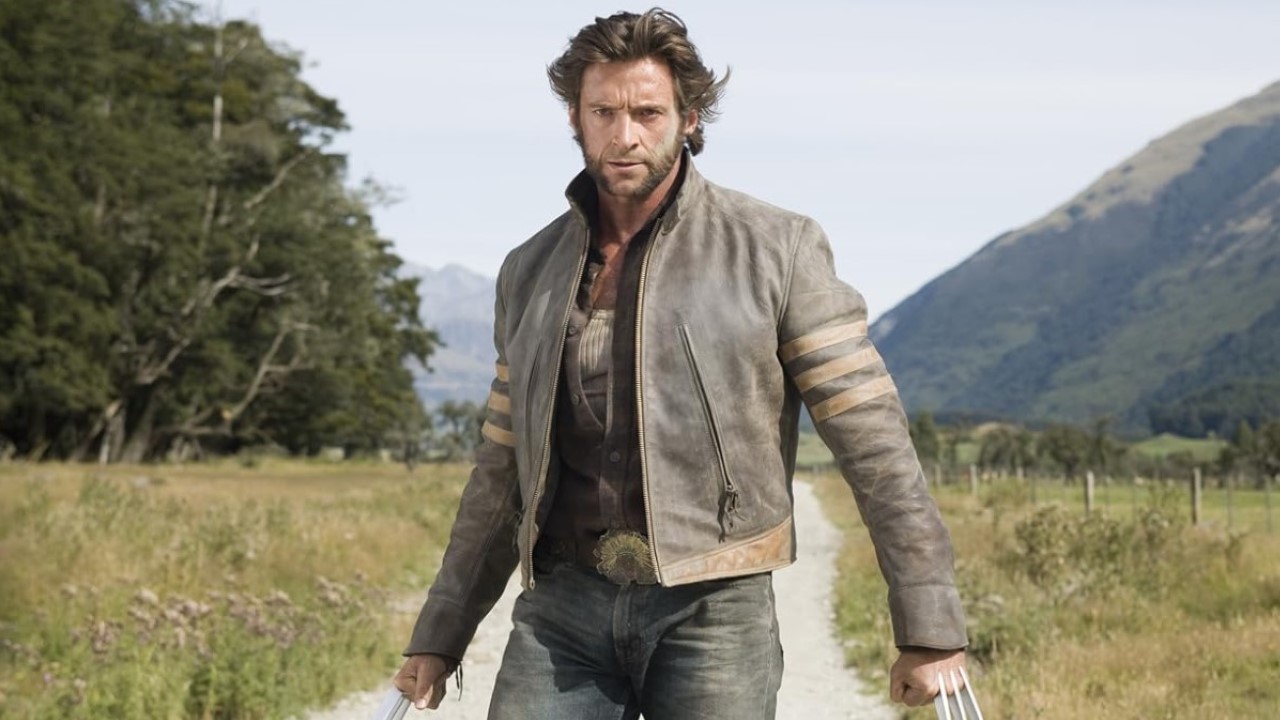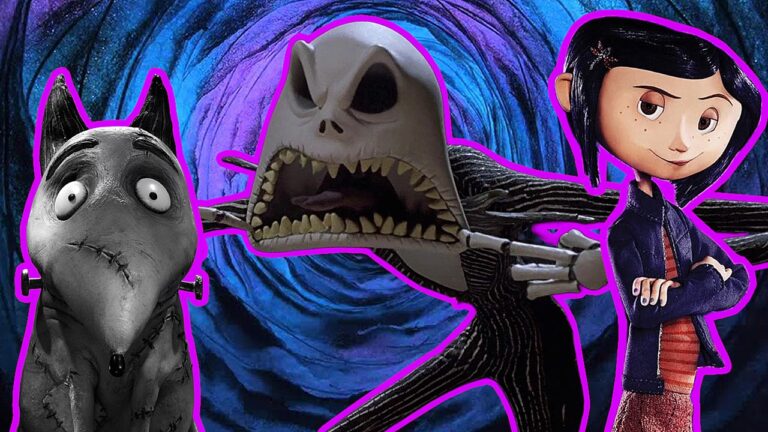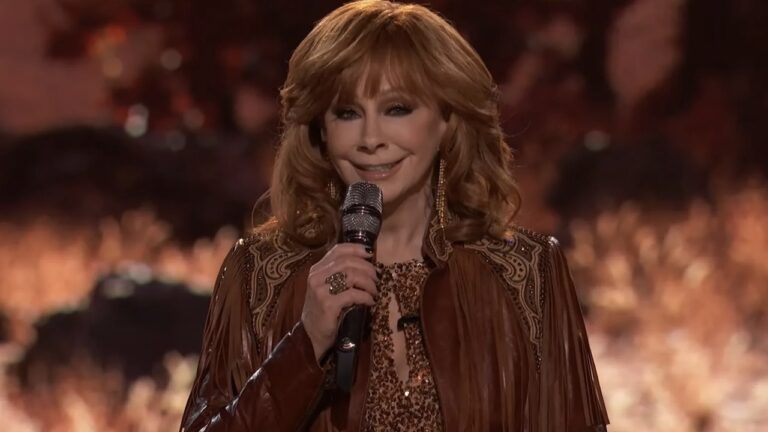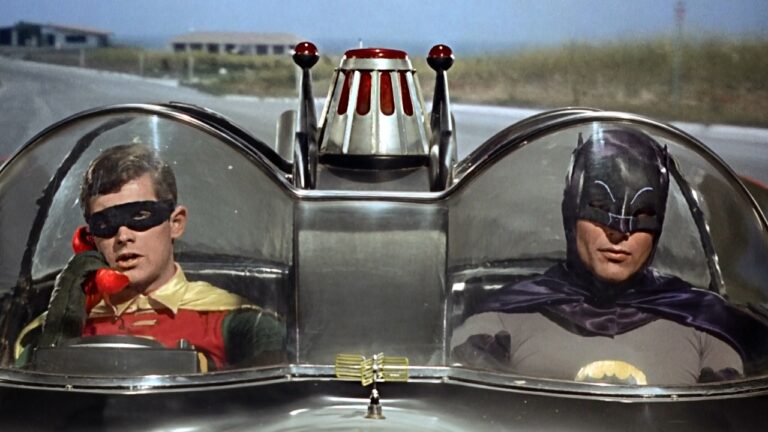15 Movies That Started Strong, But Spiraled Badly

Plenty of expectations come into question whenever audience members enter a movie theater. Aside from enjoying the cinematic escapes, filmgoers anticipate an enjoyable time with the money they spend. A coherent plotline, engaging characters, and genre-specific goodies are the basic notions when stepping into a cinema.
Of course, only some fans possess hindsight into a film’s final product. The rest only hope for a sweet time at the movies. However, they all wound up falling victim to a disappointing experience every once in a while. For reasons producers can’t explain, sometimes the movies are inconsistent with implausible results. Some films spiral into uncomfortable, foolish, and often illogical territories.
Today, these films test the standard moviegoer’s endurance when exposed to a visual project that runs itself into the dirt. Though they start off great and believable, they quickly delve into laughable zones audiences can’t help but watch. A failed rocket launch of sorts, these films started off strong, only to spiral badly through the course of their narratives.
Hancock (2008)

With Will Smith as the non-comic book anti-hero Hancock, many fans assumed the film would become a blockbuster hit. Director Peter Berg worked behind the camera, with writers Vy Vincent Ngo and Vince Gilligan penning an original script. By casting Jason Bateman and Charlize Theron alongside Smith, everything struck gold once the opening credits commenced.
What transpires is a disappointing pile of twists taking the Hancock tale into the wrong spot. The script falls flat halfway through the film, and the action’s concluding punches come up soft. Due to the low reception, Berg and Columbia Pictures seemingly moved on from a potential sequel. It’s for the better, knowing the original premise’s poor execution. Though original superhero flicks make for admirable entertainment, Hancock does not stick the landing.
Funny People (2009)

Director Judd Apatow excels in relatable adult comedy with his 40-Year-Old Virgin and Knocked Up projects. So when he went for another round with Funny People, expectations were high. The cast features comedic greats like Adam Sandler and Seth Rogen, along with many cameos from the standup world. In addition to Apatow’s style, Madison 23 Productions (Sandler’s now-defunct subsidiary) helped produce the film.
Unfortunately, the film’s hilarity only lives up to a certain point in the story. Sandler’s George Simmons prevails in a situation that sends his character in different directions. Though at times charming, Funny People can’t find its punchline, thus turning the audience members into hecklers. Judd Apatow’s later films retain his brand of humor, yet Funny People ranks as one of his more mediocre works.
Signs (2002)

Another director whose works fail to entice specific audiences is M. Night Shyamalan. The Indian-American filmmaker practices the art of twist endings in film, proven by his Sixth Sense and Unbreakable hits. Cinephiles presume any Shyamalan film includes supernatural threads entangled by plot twists. As such, his Signs film falls into this category. Powered by attractive marketing techniques, Signs proposes a mystery for all to pull apart.
Sadly, the legacy of Signs rests merely on memes and jokes about aliens and water. The film’s horror did little to scare audience members. While it sparked an enjoyable story involving a farm’s suspected alien invasion, unlike Shyamalan’s previous projects, Signs didn’t frighten film lovers. However, the film inspired the Scary Movie 3 producers to hilariously replicate many of the horror film’s laughable moments.
War of the Worlds (2005)

Regarding cinema, Steven Spielberg ranks as one of the greatest directors. Jaws introduced audiences to the summer blockbuster, and his subsequent projects garnered immense box office numbers. Jurassic Park, Schindler’s List, and Indiana Jones are only a few movies the director gifted theaters with throughout the last few decades. The practical effects from his films offer that sweet dose of movie magic, yet this prescription diminishes its impact in the 21st century.
In 2005, Steven Spielberg unleashed his take on H.G. Well’s The War of the Worlds novel. While it features notable actors like Tom Cruise and Dakota Fanning, War of the Worlds collides with an uninspired narrative involving the actors’ characters. Instead of focusing on the alien’s invasion of England, the film centers on Cruise’s family trip to Boston. The story features alien action mixed in too, yet its trajectory turns boring when the characters shelter themselves inside a basement for more than a scene.
Mortal Kombat (2021)

The critical babies of the 1990s fondly remember the first live-action Mortal Kombat in 1995. What follows is a lame attempt at a rational sequel, and 1997 proved Mortal Kombat Annihilation useless. Further adaptations relied primarily on animation until the 2010s when Warner Bros. Pictures and New Line Cinema started working on a new visual variation. Thus, the studios hired Simon McQuoid, a TV commercial director, to lead the project.
With Mortal Kombat (2021) serving as the modern interpretation of the video game series, many fans stand ready to applaud or criticize. It’s a matter of both, noting the film’s aggressive action sequences and decent casting while underdelivering a good screenplay and dialogue. Some results are toasty, yet the experience boils down to a lackluster slideshow of fan service and colorful gore.
X-Men Origins: Wolverine (2009)

Logan’s adamantium is a glimmer of light in superhero adaptations, particularly by his claws whenever Hugh Jackman activates them in the X-Men film franchise. So, after three mainline X-Men features, 20th Century Fox became greedy and ordered spin-offs on the famous Marvel characters. Knowing Jackman’s popularity as Wolverine, his character’s first in line, with a self-titled origin story premiering in 2009.
X-Men Origins: Wolverine starts wonderfully as a young Logan (played by future pop star Troye Sivan, no less) discovers his mutation amid a family tragedy. An awesome montage ensues with Logan fighting alongside Victor Creed across several significant wars.
From there, the story takes certain liberties with its range of X-Men characters and direction. The film fell victim to production issues, and the final product disappointed many, including Jackman. Ultimately, all remaining plans of producing other origin-based films plummeted, though Fox continued with two Wolverine sequels, capitalizing on Jackman’s believability as the tortured mutant.
Cars 2 (2011)

Sequels almost taste like candy for moviegoers eager for a familiar experience. They allow audience members to re-engage themselves into an established narrative spearheaded by original projects. The Pixar studio majors in this realm, particularly when discussing its Toy Story franchise. That’s why witnessing a charming sequel like Cars 2 deck out a new style hits as such a surprise
Regarded as Pixar’s first negatively-reviewed feature, Cars 2 is a rusty sequel botched by confusing plot points. On top of Mater’s character appearing more annoying than endearing, the film drove audiences off the track. While a third film reclaims some of the Cars franchise’s glory, its second installment slips last at the finish line.
Terminator Salvation (2009)

The Terminator franchise undoubtedly has a hit-and-miss reputation in the film industry. Its commencing narrative yarns from the 1980s inspire the modern sequels to retcon several major movie events, including changes to John Connor’s development. Before the sequels spoiled Arnold Schwarzenegger’s character, Terminator Salvation omitted him entirely to introduce the T-800 and Kyle Reese in a post-apocalyptic setting.
Though Terminator Salvation skipped Schwarzenegger’s presence, its action, sound, and cast attracted some audiences. However, due to pre-production problems and legal tussles, the film suffers from Christian Bale’s loose performance as John Connor and ho-hum story twists even Schwarzenegger finds in poor taste. Sadly, studios didn’t take notes, and the sequels further diminished the Terminator franchise’s reputation.
X-Men: Apocalypse (2016)

Regarding studios refusing to take notes, 20th Century Fox is the master of producing mediocre superhero flicks. With already X-Men Origins considered, the X-Men: Apocalypse adaptation takes the sweet spot for spelling the studio’s doom. After the success of Days of Future Past, Fox committed its efforts to generating more X-Men titles. By continuing a new line of prequels, Fox kicks itself into the gutter with X-Men: Apocalypse.
Starring an ensemble cast, including James McAvoy, Michael Fassbender, and Oscar Issac, X-Men: Apocalypse gives audiences a fantastical adventure involving Marvel’s mutant family. It features many characters, with En Sabah Nur taking the spotlight as the film’s villain.
However, despite Issac’s prowess as an actor, his portrayal of Apocalypse needs more intensity. Moreover, the story feels flat once the film’s opening with En Sabah Nur’s beginnings closes up. Additional sequels proved the franchise’s impending demise, and some point at Apolcapyse as the perpetrator.
The Dark Knight Rises (2012)

Not every superhero film knocks out an audience, and this, unfortunately, applies to Christopher Nolan’s final Dark Knight installment. Jumping off the success of The Dark Knight, the director expressed his interest in working on other projects. This gave Warner Bros. the green light to produce his Inception movie, which remains one of his best films. However, Nolan worked with his brother, Jonathan, and David S. Goyer on a script for a third Batman flick, and the team donned the batsuit for another round.
Although The Dark Knight Rises succeeds in adapting certain aspects of the Batman mythos, it fails entirely as a comprehensive story. Plagued by perplexing plot points, predictable outcomes, and disappointing comic-to-film moments, the film doesn’t make Gotham City proud. Though Nolan still shows off his talent as filmmaker, fans don’t view his third Batman movie quite fondly.
It Chapter Two (2019)

Director Andy Muschietti instills great fear in moviegoers with his adaptation of Stephen King’s It novel. With Chapter One accumulating great box office numbers and critical reception, everything came into place for the Argentinian creator with a sequel. Equipped with a stellar adult cast starring as the grown-up versions of It Chapter One‘s characters, It Chapter Two opened its doors to horror-hungry audiences.
Though Pennywise’s menacing presence terrorizes audiences and in-movie victims, It Chapter Two‘s frights and runtime rank among its criticisms, in addition to some shoddy CGI work. It Chapter Two tumbles into messy territory when it loses its structural concentration and message from the first film. Moreover, a specific character’s suicide undermines certain themes many fans believe the sequel overlooked.
Batman v Superman: Dawn of Justice (2016)

Visionary director Zack Snyder excels in special effects, lighting, and slow motion. His 300 and Watchmen films not only adapt award-winning work but also demonstrate the director’s talents in cinema. Both prove the creator can tackle comic book movies, so Warner Bros. granted him the pleasure of directing a Superman movie with Man of Steel. Though reviews were mixed, the film spawned Batman v Superman: Dawn of Justice, the first featuring two DC Comics giants in one setting.
Sadly, Batman v Superman didn’t deliver the superhero punches audiences craved for generations. Brought down by embarrassing casting choices and a ludicrous script, the highly-anticipated sequel softened its blow. While the warehouse fight sequence remains one of the film’s redeeming qualities, the titular fight fails to live up to the hype. Dawn of Justice‘s downfall ultimately led to a troubled production with its sequel, Justice League.
Iron Man 2 (2010)

The first Iron Man jump-started the immensely successful Marvel Cinematic Universe from Marvel Studios. Starring Robert Downey Jr. as the eponymous hero, the sequel follows Tony Stark facing a few consequences following his announcement as Iron Man. With governments requesting his technology and a particular Russian vowing vengeance against Stark, a lot is on the line for Marvel’s heavy-metaled man. Moreover, S.H.I.E.L.D. agents continue involving their collaborative protocols with Stark.
It appears Stark’s thrusters didn’t contain enough juice to keep Iron Man 2 up in the air. With the script enduring changes, some of the film’s narrative splits into different unenjoyable angles. It stuck close to Stark’s rapid quips while minimizing the seriousness layer within the film’s lore. Though it helped assemble Earth’s Mightiest Heroes, many MCU fans rank Iron Man 2 as a less-than-favorable entry.
World War Z (2013)

World War Z: An Oral History of the Zombie War is Max Brooks’ epic horror novel that inspired 2013’s adaptation. Starring Brad Pitt, Mireille Enos, and many other well-known actors, World War Z loosely bases its narrative on Brooks’ writing. By taking only a few key points from the book, the film switches up the action dial to an unexpected level instead of focusing more on the war’s thematic elements. This equals out to more action, for better or worse.
With the final product in mind, World War Z concludes its conflict with an empty feeling. In under two hours, audiences witness the beginning, middle, and passable ending to a zombie war, topped by Pepsi cola product placement. The film hardly touches on its source material’s juicy content, filtering out plenty of Brooks’ motifs of global fear and uncertainty amid international conflicts.
Suicide Squad (2016)

Adapting new works for the silver screen is always a gamble, particularly involving a less-popular superhuman group. Moviegoers know the Avengers, Justice League, Watchmen, and many other organizations that quickly sell tickets like wildfire. So when Warner Bros. orders a Suicide Squad film, some viewers understandably shake their heads. Who is this band of criminals, and why should fans care? The DC Extended Universe aimed to make filmgoers fall in love with new faces like Deadshot, Harley Quinn, Amanda Waller, and more.
Though writer/director David Ayer delivered slices of fun with Suicide Squad, the film drags almost halfway through its narrative. With uninteresting characters, a weak story, and unattractive action, the superhero film adds a little flair to the DCEU’s mixed reception. It dirties the property with its “26%” Rotten Tomatoes rating to showcase its failed execution. Of course, James Gunn redeems the supervillain team with a 2021 sequel, but forgetting Ayer’s initial mess is difficult.





